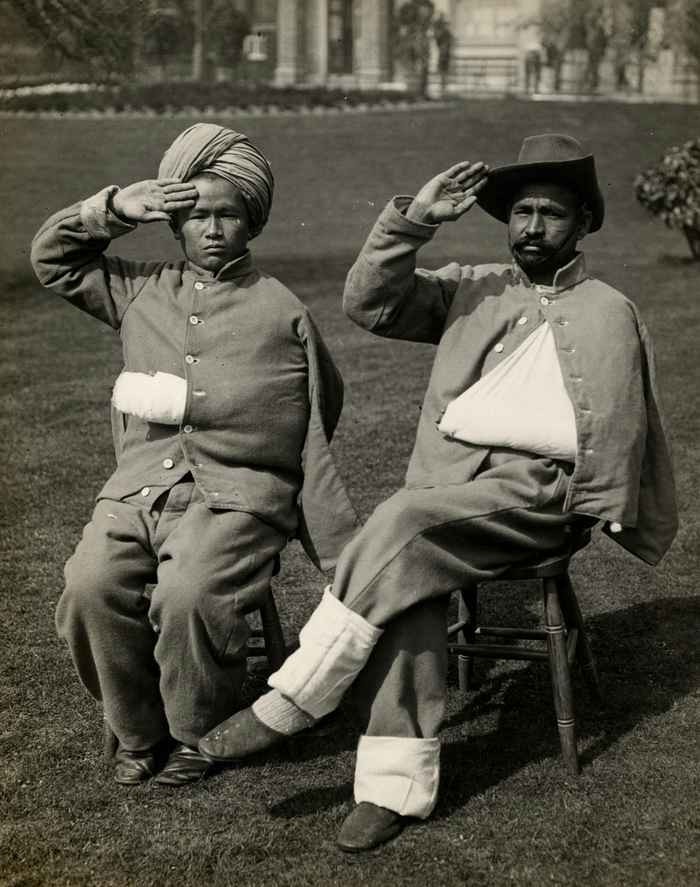Call for Papers: History Repeating: Populist Imaginaries, Cultural Productions, and Subaltern Identity Formation in a Trans-Historical Perspective
10 February 2024

Accepted seminar participants will present their ideas, experiences, and perspectives against the following background:
Seminar Description
Short Abstract
This multidisciplinary seminar aims to explore in a comparative perspective the historical, mediatic, and socio-cultural roots of the populist dynamics of governmentality and the criminalizing processes of subaltern identity formation characterizing various instantiations of the public sphere in space and time to date. It will do so by critically debating and comparing the relationships between specific modalities of cultural production and media circulation, the populist imaginaries contextually emerging from them, and the criminalizing socio-political phenomena of structural violence and social marginalization they complementarily contributed to entail within a wide range of geographical, institutional, and temporal landscapes.
Long Abstract
The processes of cultural production and circulation that characterize current media outlets and online platforms of social mediation, in tandem with the forms of relationality they elicit in context, intersect the institutional life of neoliberal democracies on multiple levels, while often serving as controversial “echo chambers” for the creation, circulation, and entrenchment of rather marginalizing populist discourses and dynamics of subaltern identity formation on a global scale (Teitelbaum 2020; Mazzarella 2019; Gerbaudo 2018). For example, the recent electoral affirmations of populist parties and movements of explicit far-right inspiration and xenophobic intentions within many European, North American, and Latin American contexts of neoliberal governance, as well as the forms of social discrimination, symbolic violence, and criminalizing “stereotypizations” of various gendered, racialized, and class-based minorities they have contextually elicited, have been all supported by an intense mediatization of politics, which systematically relied on consumer-based forms of digital cultural production and online networking between populist institutional operators and their “followers.”
Accordingly, current neoliberal processes of cultural production and circulation frequently reify populism as a mode of political communication through which diversely empowered social groups (e.g.: unemployed people, precarious workers, middle- and upper-class subjects) performatively engage with the public sphere as a homogenous social body (e.g.: the “people”) due to their supposed common antagonism against more or less imagined social formations, which they culturally interpret as external to the people itself (Laclau 2005).
Given that, this strong relationship of interdependency between populist processes of subaltern identity formation and the specific ways in which cultural productions are time by time regulated and marketed (e.g.: either directly by state authorities or through indirect mechanics of economic governmentality) goes way beyond the digital age and the rise of neoliberal state-power. Such a liaison has been detected throughout history, across various geographical and socio-cultural landscapes, especially during times connoted by conflicts, political authoritarianism, and/or abrupt socio-institutional change (Benjamin 1968 [1935]).
Just think of how, during the 16th century, witchcraft and the subsequent witch-hunting became an official ideology of the Catholic Inquisition offices, thus legitimizing the marginalization, criminalization, and persecution of women belonging to various subaltern backgrounds (Ginzburg 2013 [1966]). As the age of witch hunts coincided with the publishing revolution and the pan-European circulation of new practices of media circulation (Anderson 1983), the press played a significant role in this gendered phenomenon of populist governmentality and its nefarious outcomes, turning Church-sponsored inquisitorial volumes like the “Malleus Maleficarum” (Kramer and Sprenger 2011 [1486]) into “best-selling” cultural productions easily accessible to civil society of its time.
Moving closer to our time, another example of the close interdependence between the regulation of cultural productions and the formation of criminalizing subaltern identities can be found in war propaganda, this time, through ethnic and social stereotyping of the enemy (Leerssen 2022). Following the rise of capitalist mass society in mid-19th-century Europe, the circulation and overall popularization of state-sponsored populistic pamphlets and booklets played an important role in the phenomena of racial and nationalist ‘stereotypization’ that historically legitimized most of the conflicts involving major Western powers up to the late 20th century (e.g.: colonial wars, the two World Wars, the Cold War).
Based on such considerations, this workshop intends to identify and explore in a comparative perspective the historical, mediatic, and overall cultural roots of the populist dynamics of governamentality and subaltern identity formation that have characterized various instantiations of the public sphere in space and time to date. With this aim, this seminar welcomes interventions that analyze the relationship between specific modalities of cultural productions, populist imaginaries, and discriminatory processes of subaltern identity formation within a wide range of geographical, institutional, and temporal landscapes.
Seminar Chair and Debate Moderator
Prof. Dr. Chiara de Cesari (Department of Cultura Studies, University of Amsterdam)
Submissions
If you would like to participate (either in-person or online) in this Multidisciplinary Seminar, please submit your abstract of approx. 250 words via email to the organizers: Dr. Salvatore Giusto (s.giusto@uva.nl) and Dr. Francesca Zantedeschi (f.zantedeschi@uva.nl) before the provided deadline (15th of March 2024).
References Cited
Anderson, B. 1983. Imagined Communities, London and New York: Verso.
Benjamin, W. 1968 [1935]. Illuminations, New York: Schocken Books.
Gerbaudo, P. 2008. “Social Media and Populism: An Elective Affinity?”, Media Culture and Society, 40 (5): 745-753.
Ginzburg, C. 2013 [1966]. The Night Battles. Witchcraft and Agrarian Cults in the Sixteenth and Seventeenth Centuries. Baltimore: John Hopkins University Press.
Kramer, H., and Spreger, J. 2011 [1486]. Malleus Maleficarum. San Jose: SLG Publishing.
Laclau, E. 2005. On Populist Reason. London and New York: Verso.
Leerssen, J. 2022. “Enmity, Identity, Discourse: Imagology and the State”, in Edtstadler K., Folie, S., and Zocco G. (ed.), New Perspectives on Imagology, Leiden: Brill, pp. 49-69.
Mazzarella, W. 2019. “The Anthropology of Populism: Beyond the Liberal Settlement.” Annual Review of Anthropology, 48 (1): 45-60.
Teitelbaum, B. 2020. War for Eternity: Inside Bannon’s Far-Right Circle of Global Power Brokers, London: Penguin Books Ltd.